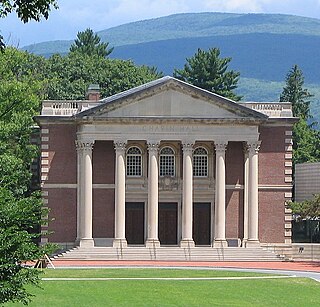
A college is an educational institution or a constituent part of one. A college may be a degree-awarding tertiary educational institution, a part of a collegiate or federal university, an institution offering vocational education or a secondary school.
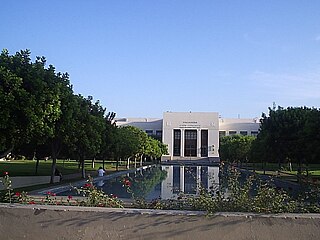
A community college is a type of educational institution. The term can have different meanings in different countries: many community colleges have an “open enrollment” for students who have graduated from high school. The term usually refers to a higher educational institution that provides workforce education and college transfer academic programs. Some institutions maintain athletic teams and dormitories similar to their university counterparts.

Dalhousie University is a public research university in Nova Scotia, Canada, with three campuses in Halifax, a fourth in Bible Hill, and medical teaching facilities in Saint John, New Brunswick. Dalhousie offers more than 4,000 courses, and 180 degree programs in twelve undergraduate, graduate, and professional faculties. The university is a member of the U15, a group of research-intensive universities in Canada.
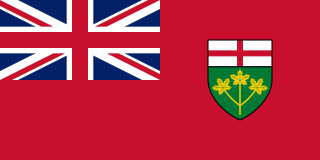
Ontario is one of the 13 provinces and territories of Canada and is located in east-central Canada. It is Canada's most populous province accounting for 38.3 percent of the country's population, and is the second-largest province in total area. Ontario is fourth-largest jurisdiction in total area when the territories of the Northwest Territories and Nunavut are included. It is home to the nation's capital city, Ottawa, and the nation's most populous city, Toronto, which is also Ontario's provincial capital.
The University of Manitoba is a public research university in Manitoba, Canada. Its main campus is located in the Fort Garry neighbourhood of southern Winnipeg with other campuses throughout the city. Founded in 1877, it is Western Canada's first university. The university maintains a reputation as a top research-intensive post-secondary educational institution and conducts more research annually than any other university in the region.
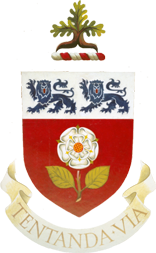
York University is a public research university in Toronto, Ontario, Canada. It is Canada's third-largest university, and it has approximately 52,300 students, 7,000 faculty and staff, and 295,000 alumni worldwide. It has eleven faculties, including the Faculty of Liberal Arts & Professional Studies, Faculty of Science, Lassonde School of Engineering, Schulich School of Business, Osgoode Hall Law School, Glendon College, Faculty of Education, Faculty of Health, Faculty of Environmental Studies, Faculty of Graduate Studies, the School of the Arts, Media, Performance and Design, and 28 research centres. The Keele campus is also home to a satellite location of Seneca College.
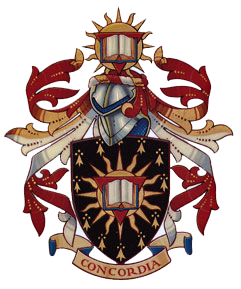
Concordia University is a public comprehensive university located in Montreal, Quebec, Canada on unceded Indigenous lands. Founded in 1974 following the merger of Loyola College and Sir George Williams University, Concordia is one of the three universities in Quebec where English is the primary language of instruction. As of the 2017–2018 academic year, there were 46,093 students enrolled at Concordia, making the university among the largest in Canada by enrolment. The university has two campuses, set approximately 7 kilometres apart: Sir George Williams Campus is the main campus in Downtown Montreal, in an area known as Quartier Concordia, and Loyola Campus in the residential district of Notre-Dame-de-Grâce. With four faculties, a school of graduate studies and numerous colleges, centres and institutes, Concordia offers over 300 undergraduate and 100 graduate programs and courses.

The University of Waterloo is a public research university with a main campus in Waterloo, Ontario, Canada. The main campus is on 404 hectares of land adjacent to "Uptown" Waterloo and Waterloo Park. The university offers academic programs administered by six faculties and ten faculty-based schools. The university also operates three satellite campuses and four affiliated university colleges. Waterloo is a member of the U15, a group of research-intensive universities in Canada. The University of Waterloo is most famous for its cooperative education (co-op) programs, which allow the students to integrate their education with applicable work experiences. The university operates the largest post-secondary co-operative education program in the world, with over 20, 000 undergraduate students in over 140 co-operative education programs.

Regina is the capital city of the Canadian province of Saskatchewan. The city is the second-largest in the province, after Saskatoon, and a cultural and commercial centre for southern Saskatchewan. It is governed by Regina City Council. The city is surrounded by the Rural Municipality of Sherwood No. 159.

A royal charter is a formal grant issued by a monarch under royal prerogative as letters patent. Historically, they have been used to promulgate public laws, the most famous example being the British Magna Carta of 1215, but since the 14th century have only been used in place of private acts to grant a right or power to an individual or a body corporate. They were, and are still, used to establish significant organisations such as boroughs, universities and learned societies.

The University of Western Ontario (UWO), corporately branded as Western University as of 2012 and commonly shortened to Western, is a public research university in London, Ontario, Canada. The main campus is located on 455 hectares of land, surrounded by residential neighbourhoods and the Thames River bisecting the campus' eastern portion. The university operates twelve academic faculties and schools. It is a member of the U15, a group of research-intensive universities in Canada.

Education in Canada is for the most part provided publicly, funded and overseen by federal, provincial, and local governments. Education is within provincial jurisdiction and the curriculum is overseen by the province. Education in Canada is generally divided into primary education, followed by secondary education and post-secondary. Within the provinces under the ministry of education, there are district school boards administering the educational programs.

Upper Canada College (UCC), located in Toronto, Ontario, is a private school for boys between Senior Kindergarten and Grade Twelve, operating under the International Baccalaureate program. The secondary school segment is divided into ten houses; eight are for day students and the remaining two are for boarding students. Aside from the main structure, with its dominant clock tower, the Toronto campus has a number of sports facilities, staff and faculty residences, and buildings for other purposes. UCC also owns and operates a campus in Norval, Ontario, for outdoor education.
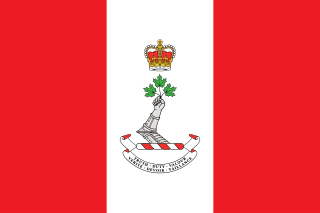
The Royal Military College of Canada, commonly abbreviated as RMC , is the military college of the Canadian Armed Forces, and is a degree-granting university training military officers. RMC was established in 1876 and is the only federal institution in Canada with degree-granting powers. The Royal Military College of Canada Degrees Act, 1959 empowers the college to confer degrees in arts, science, and engineering. Programs are offered at the undergraduate and graduate levels, both on campus as well as through the college's distance learning programme via the Division of Continuing Studies.

The University of Regina is a public research university located in Regina, Saskatchewan, Canada. Founded in 1911 as a private denominational high school of the Methodist Church of Canada, it began an association with the University of Saskatchewan as a junior college in 1925, and was disaffiliated by the Church and fully ceded to the University in 1934; in 1961 it attained degree-granting status as the Regina Campus of the University of Saskatchewan. It became an autonomous university in 1974. The University of Regina has an enrollment of over 15,000 full and part-time students. The university's student newspaper, The Carillon, is a member of CUP.
The Humber Institute of Technology and Advanced Learning, commonly known as Humber College, was founded in 1967. Humber is a publicly funded college in Toronto, Ontario, Canada. Humber has three main campuses, Humber North campus, Lakeshore campus, and Humber Orangeville campus.
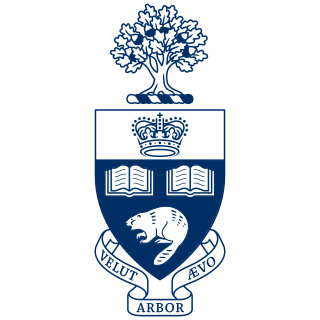
The University of Toronto is a public research university in Toronto, Ontario, Canada, located on the grounds that surround Queen's Park. It was founded by royal charter in 1827 as King's College, the first institution of higher learning in the colony of Upper Canada. Originally controlled by the Church of England, the university assumed the present name in 1850 upon becoming a secular institution. As a collegiate university, it comprises eleven colleges, which differ in character and history, each with substantial autonomy on financial and institutional affairs. It has two satellite campuses in Scarborough and Mississauga.

The University of Guelph is a comprehensive public research university in Guelph, Ontario, Canada. It was established in 1964 after the amalgamation of Ontario Agricultural College, the MacDonald Institute, and the Ontario Veterinary College, and has since grown to an institution of more than 32,000 students and over 1,500 faculty as of fall 2015. It offers 94 undergraduate degrees, 48 graduate programs, and 6 associate degrees in many different disciplines.
The principal is the chief executive and the chief academic officer of a university or college in certain parts of the Commonwealth.
















